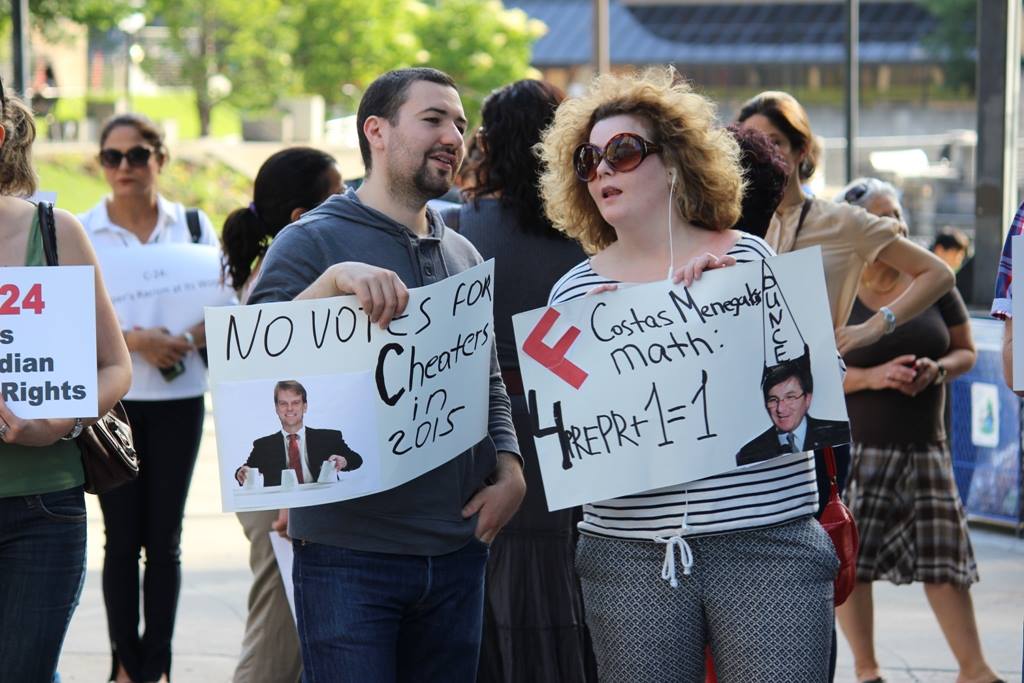Galati appeals “citizenship is not a right” ruling

Constitutional lawyer Rocco Galati has appealed Federal Court’s dismissal of his challenge against Harper government’s new Strengthening Canadian Citizenship Act that allows the citizenship minister to to revoke the citizenship of natural-born and naturalized Canadian citizens, where the presiding judge ruled that citizenship is not an inalienable right.
Galati, who successfully blocked Prime Minister Stephen Harper’s nominee Marc Nadon’s appointment to the supreme court, was joined by Manuel Azevedo and the Constitutional Rights Centre in challenging Governor General David Johnston’s decision on June 19, 2014 to grant royal assent to Bill C-24.
The applicants argued in the case against the Governor General, the Minister of Citizenship and Immigration Christ Alexander, and the Minister of Justice that section 8 of the Strengthening Citizenship Act, which gives citizenship minister authority to revoke the citizenship of those who have been convicted of terrorism or national security related charges, is beyond the legislative competence of Parliament under the Constitution Act, 1867.
Justice Donald J. Rennie dismissed the case on the grounds that Governor General’s grant of royal assent is not justiciable, and that the the named defendants, are not proper parties, not subject to the suit, and that, “in any event, the substantive argument with respect to constitutionality of the Strengthening Citizenship Act fails.”
The judge ruled that “Section 8 of the Strengthening Citizenship Act is within the legislative competence of Parliament,” as there was no legal basis to support the position that citizenship is an inalienable right that cannot be defined, circumscribed or revoked by Parliament.
“Certainly, by 1824, the year in which Doe on the Demise of Thomas v Acklam was decided, the concept that citizenship was inalienable had been rejected,” Justice Rennie wrote in his judgement. “Legislative and judicial responses to events in pre- and post-Confederation Canada and in the United Kingdom also cast considerable doubt on the concept of a perpetual bond between the subject and sovereign as a common law principle, let alone one with a constitutional dimension.”
“Legislation can always, save the constraint of the division of powers and the Charter, trump common law principles,” the judge added. “As Professor Hogg notes, Parliament received powers as ‘plenary and ample’ as those of the United Kingdom Parliament”
“Thus, Parliament can, through legislation, reverse or override any common law principle,” Justice Rennie concluded. “A historical review of such legislative and judicial responses illustrates that neither Westminster, nor Parliament, felt that citizenship was inalienable.”
Legal experts and rights groups include the Canadian Bar Association and Canadian Civil Liberties Association criticized Bill C-24 when it was first introduced claiming that the legislation would create two classes of citizens while re-introducing the medieval practice of banishment.
“We must remember that citizenship includes rights, and to strip individuals of citizenship is to re-introduce archaic punishments such as exile and banishment – the possibility of statelessness is also a serious concern,” General Counsel and Executive Director Sukanya Pillay said. “Any arbitrary loss of citizenship is incompatible with democratic values and fundamental rights.”



